Brexit: Deal with backstop toxicity, says Arlene Foster
- Published
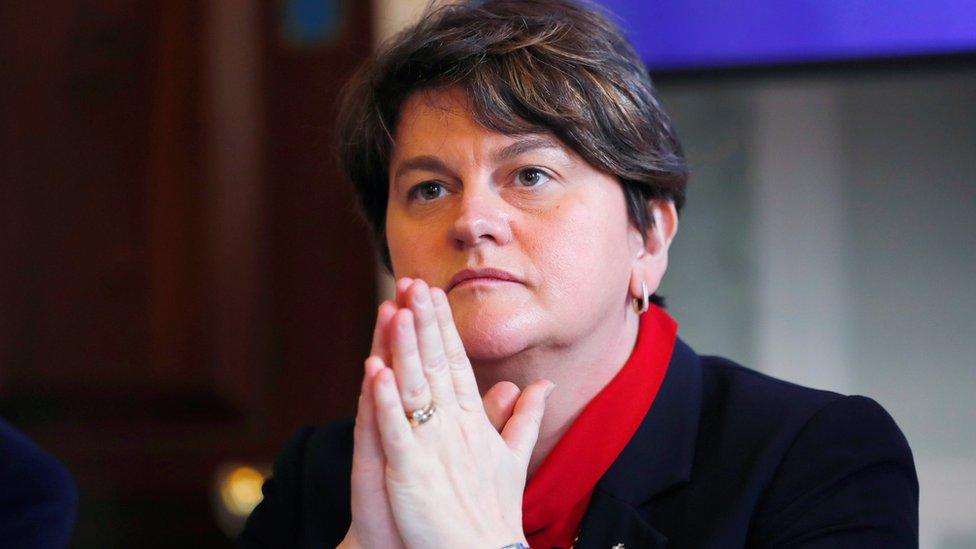
The terms of Brexit have to be acceptable to both sides, says Arlene Foster
Dealing with the "toxicity" of the Irish border backstop would allow the EU and UK to move towards a Brexit deal, Arlene Foster has said.
The Democratic Unionist Party (DUP) leader said she was hopeful of finding alternatives but it depended on the "willingness" of the Irish government.
But Irish PM Leo Varadkar said the need for the backstop was proven by events at Westminster this week.
He said the UK had "resiled from an agreement that they made" with the EU.
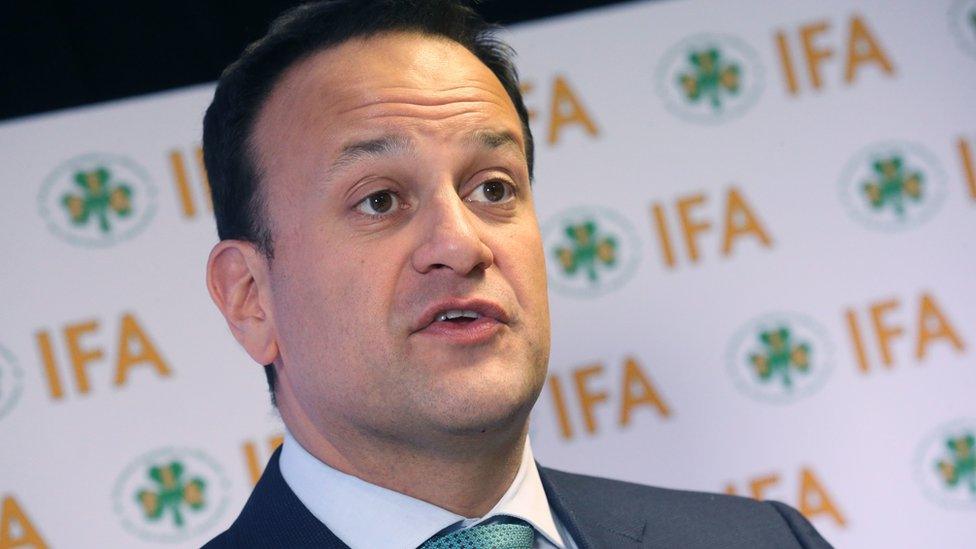
The threat of a no-deal Brexit is not being made by the EU, says Leo Varadkar
MPs voted on Tuesday to seek "alternative arrangements" to replace the backstop in Prime Minister Theresa May's Brexit deal.
But the EU said it would not change the legal text it had agreed with Mrs May.
'Not giving up'
The backstop is a last-resort insurance policy to maintain an open border on the island of Ireland in the event that the UK leaves the EU without securing an all-encompassing deal.
Speaking to Irish national broadcaster RTÉ, Mr Varadkar said: "More so than even it's been demonstrated why we need a legal guarantee so a prime minister, or a government or a parliament of the day, can't abrogate it."
Mrs Foster told the BBC Radio Ulster's The Sunday News that if the EU wants a deal it has to be one that is acceptable to both sides.
"I think we really need to focus on trying to get a deal - that's what the DUP want, that's what the government wants and I believe it's what the EU wants," she said.
Confused by Brexit jargon? Reality Check unpacks the basics.
"I'm certainly not giving up.
"It's the right thing to do to go back and say that, whilst there are other issues with the withdrawal agreement, if this issue around the toxicity of backstop was dealt with then we would be able to move forward."
She said she believed it was possible to find an "alternative" to the backstop "if there's a willingness" from the EU "but mainly the Republic of Ireland".
The UK is due to leave the EU on 29 March and Mrs Foster said she hoped that coming closer to that date would help to "focus minds".
"I very much hope the compression that is now happening will lead people to come and make a deal that is good for everyone," she added.
'Absolute bare minimum'
Mr Varadkar said that a no-deal Brexit "can be taken off the table at any time".
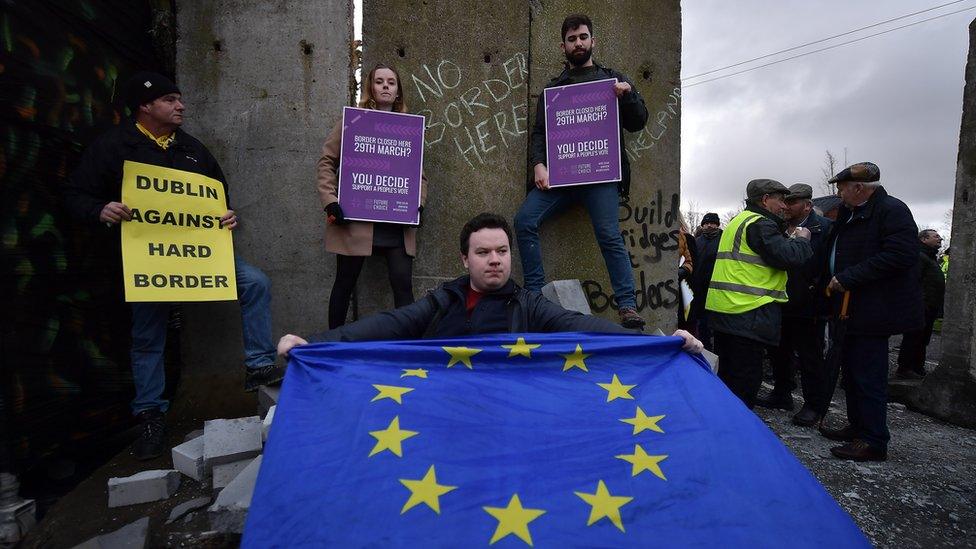
The Irish border has been one of the most contentious Brexit issues
"This threat of no deal is not a threat that Ireland or Europe is making," he added.
"It's in the hands of Britain to extend Article 50 or revoke it if they so choose."
Also speaking on Sunday, the Sinn Féin president Mary Lou McDonald said the backstop was "the absolute bare minimum" required.
"There was a common resolution on the part of the British government, on the part of Europe, certainly from the Irish side, to protect the Good Friday Agreement in all of its parts," she told the BBC's The Andrew Marr Show.
"That is why a backstop or a set of very specific protections were landed on.
"They are minimal but they are the absolute bare necessities to ensure that our economy, that our society and crucially our peace agreement isn't disrupted."
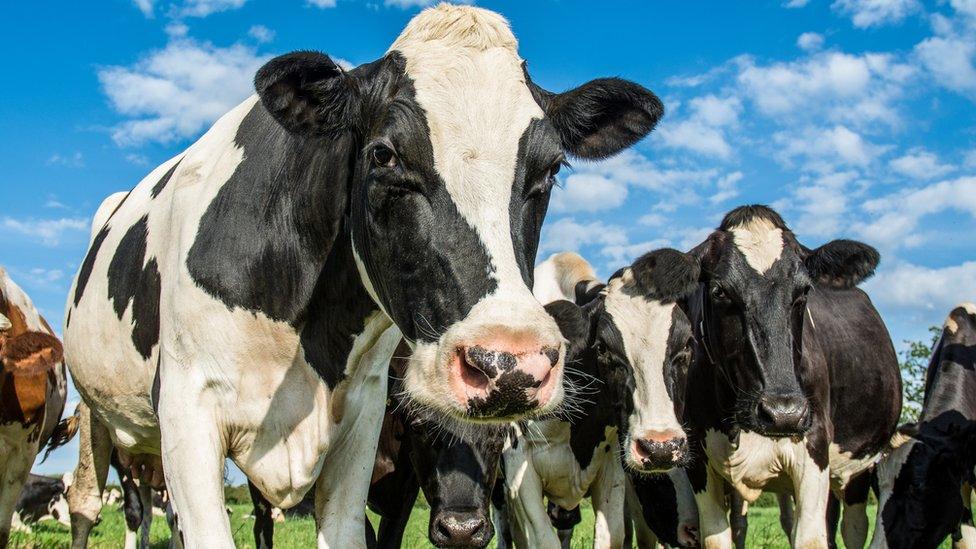
A no-deal Brexit would result in unsustainable tariffs on farm produce, according to the UFU
The Ulster Farmer's Union president Ivor Ferguson told the BBC's Sunday Politics that it would be an "absolute disaster" for farmers if the UK left the EU without a deal.
"When we are looking at this no-deal situation we are looking at the facts - the facts are if we are outside the EU we would face tariffs.
"It would just be unsustainable and we could not handle a no-deal situation.
"It would be an absolute disaster for us and for everybody in the agri-food business."
- Published3 February 2019
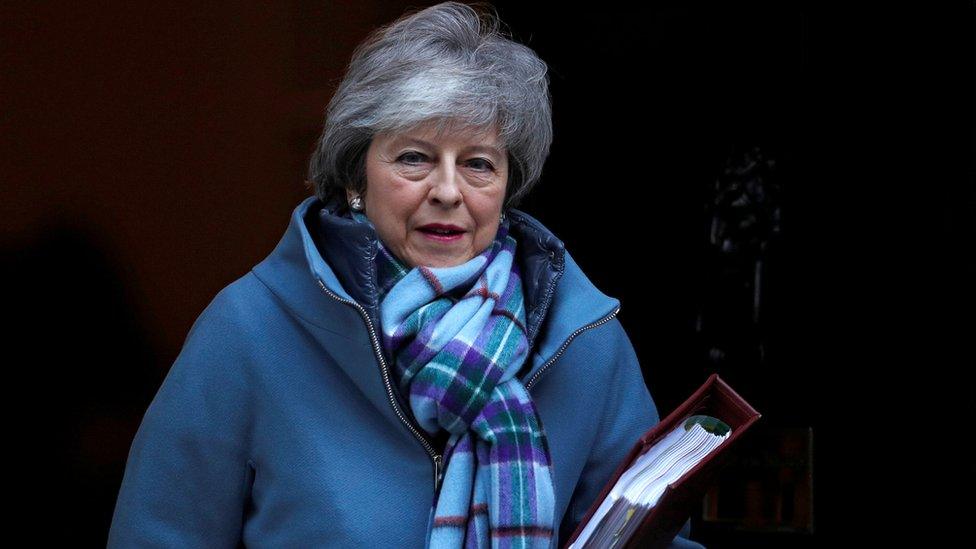
- Published1 February 2019
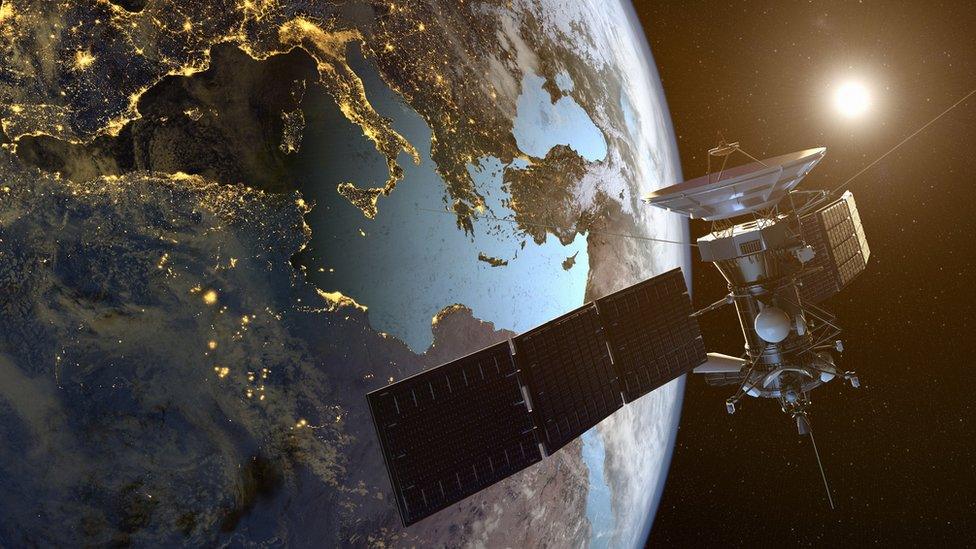
- Published30 July 2019

- Published27 January 2019
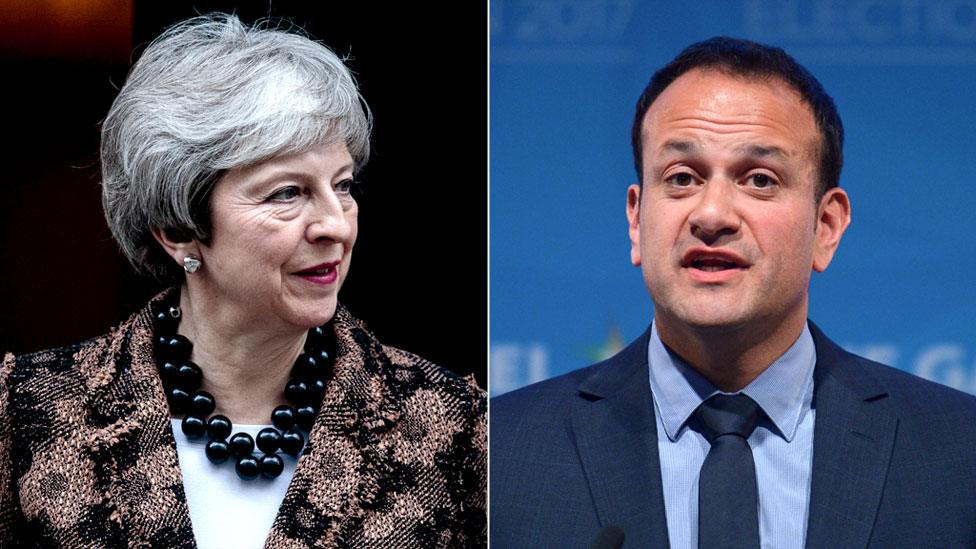
- Published16 October 2019

